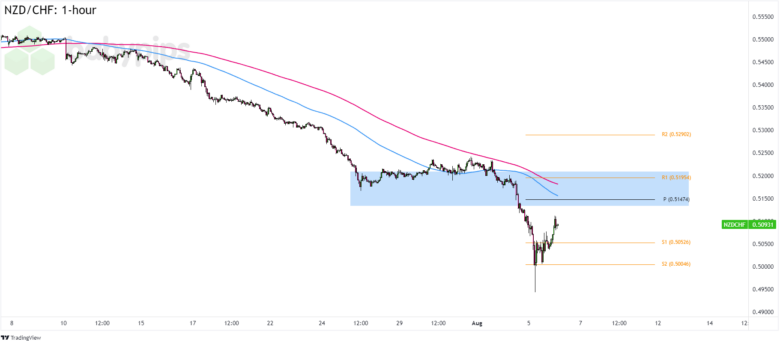
The fintech industry has moved into the modern era from something deeper than just better technology. The global financial crisis of 2008 sparked a crisis of confidence. For millions of consumers and businesses, the crisis has revealed the need for greater transparency. A new generation of financial services companies – fintechs – have stepped in to fill this gap to not only drive efficiency and reduce costs, but also transparency and accessibility.
This approach has achieved real results: the International Monetary Fund has found that digital finance not only increases financial inclusion, but is also associated with higher GDP growth, and in turn helps create a more equitable global financial system.
The FinTech industry has now matured, as evidenced by successful industry forums such as the Singapore FinTech Festival and Hong Kong FinTech Week. The question has changed: it is no longer a question of whether fintech can bring about change; Rather, it is whether fintech can build enough trust to manage and move global money, and realize the full potential of the sector?
I believe we are at a critical inflection point. The potential of financial technology– Business, social and economic – depend entirely on gaining people’s trust to bring more of them, and their financial resources, into the system.
Now is the greatest opportunity
Fintech is in the middle of a power-charged era: AI-driven efficiencies and personalization, instant decentralized settlements, and a fully digital wealth management experience, all of which would have been unimaginable a decade ago, are now on the way.
Basic trust has already been established. One example: Across age groups, new technologies have dramatically reduced the need for physical cash, if not made it almost non-existent, in many economies.
However, it’s a big leap to go from trusting a platform to make a simple payment to trusting it to manage your retirement savings. As technologies become more powerful and personalized, trust is increasingly the gatekeeper to greater adoption. Greater accountability increases trust in complex financial systems and puts pressure on companies to demonstrate transparency.
As algorithms and technology become more sophisticated, customers must understand exactly how decisions are made, where their money is kept, and how their data is used. If fintech cannot bridge the gap between these rapid developments and clear, jargon-free information and education, its mass adoption will falter.
The limitation will not be the technology itself, but rather a lack of public trust, which ultimately limits the industry’s ability to improve financial health and inclusion.
After all, a crisis of confidence can wipe out decades of work in mere days – just think of 2023 and the Silicon Valley bank crisis. Trust must be consciously designed into every layer of the platform.
Engineering trust in the business model
In an industry where relationships with users are largely digital, trust must be engineered through design. This requires that modern fintech platforms be built on three non-negotiable pillars:
First, fintech companies must continue to open access to their services. Platforms need to lower traditional barriers to entry – high minimums, complex processes, early redemption fees, etc. – to ensure that no one is excluded from the wealth creation process.
Second, platforms must provide guidance to their users. Financial confidence comes from clarity, not from endless choice. Platforms must combine digital simplicity with human reassurance and expertise when needed.
And a swordwe have tried to put human expertise front and center, for example by offering discretionary management by our in-house experts in managed portfolios, but scaling it up with technology to maximize reach. Personalized inventory updates, powered by AI, are a good example of this process in action.
FinTech companies also need to build financial literacy, which remains a major challenge even in developed markets. Take Singapore: Fidelity International found that only 22% of its population feels confident about their ability to invest money. Education and jargon-free information are essential components to empowering people to build a better financial future.
Finally, fintech platforms must be affordable. It sends a clear signal: they only succeed when their customers succeed. In an industry where hidden fees can erode trust, cost efficiency ensures that technology can expand reach without exploiting customers.
Putting trust at the heart of any business is the only sustainable growth strategy, not just an ethical stance. Customers who feel empowered and secure are more likely to recommend the service to others, stay through market fluctuations, and continue to adopt new products.
The imperative over the next decade is clear. If fintech is to deliver on its promise of democratizing access to better financial outcomes, it must make trust the organizing principle of its business. This requires investment, patience, and the courage to trade short-term disruption for long-term credibility. Trust will be the hardest metric to win, but it will be the most important metric.
The opinions expressed in Fortune.com reviews are solely those of their authors and do not necessarily reflect the opinions and beliefs of Fortune.
Fortune magazine just hosted the Fortune Innovation Forum in Kuala Lumpur, Malaysia, where business leaders and policymakers from across the region discussed and discussed strategies for a world marked by artificial intelligence, protectionism, and geopolitical tensions. Check out our keynote sessions here and ourEditorial coverage here!
The post Syfe CEO: Fintech founders need to focus on trust if the sector is to reach its full potential first appeared on Investorempires.com.


